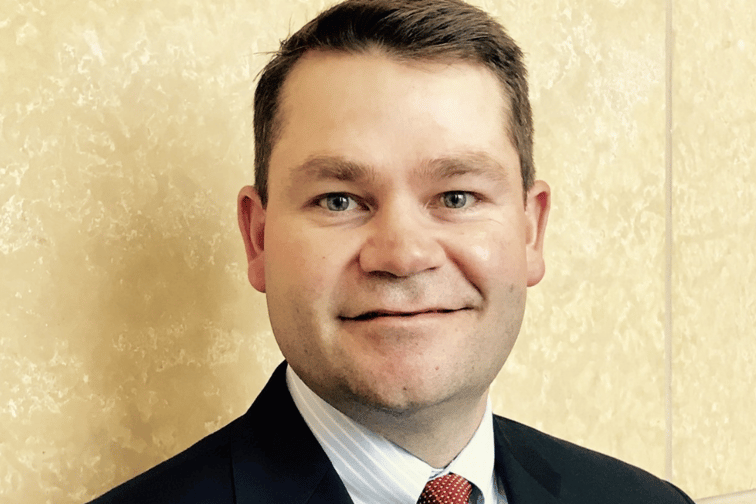

Climate risk is top of mind for many business and commercial property owners, but while most feel prepared for extreme weather events, their insurance agents aren’t as confident, a new survey has revealed.
According to the latest Nationwide Agency Forward survey, more than half (52%) of agents believe less than half of their commercial clients have an appropriate level of coverage for their catastrophe exposure.
Agents are also concerned about whether their commercial clients have robust risk mitigation and business continuity strategies in place if disaster strikes.
Tony Fenton (pictured), VP of commercial lines product & underwriting at Nationwide, said agents are uniquely positioned to address the gap between clients’ perceived readiness and the reality of their coverage to help ensure customers are properly insured to value as climate risk grows.
“There’s awareness, but the actual preparedness might not be at the level that’s ticking all boxes,” he told Insurance Business.
“That's where agents have the grand opportunity to be consultative experts, to lean in and help the customer think through whether they’re properly protected.”
Nationwide’s survey polled 500 commercial property stakeholders (business owners, commercial property owners, and new construction builders) and 400 independent insurance agencies online between August and September this year.
The findings showed that 69% of agents and 62% of commercial property stakeholders were “very” or “extremely” concerned about the risk of severe weather and natural disasters.
Customers were most concerned about structural damage caused by winds, tornadoes, flooding, or lightning strikes. Beyond structural damage, they were also worried about business interruption, water intrusion, and damage to personal property or electrical systems.
Fenton was not surprised by the level of concern about severe weather risks, especially considering 40% of businesses fail to reopen after a disaster, according to FEMA data.
“We found the concerns high across the board for customers and agents,” he said.
The Nationwide survey also revealed the true cost of recovering from a natural disaster. Over a third (36%) of property owners surveyed said they had recently suffered damage from extreme weather in the last five years. Nationally, 13% experienced damage from a natural disaster in the past year.
While the majority (88%) were able to fully recover within six months, the costs can be staggering. Almost half (49%) reported recovery costs between $20,000 to $50,000.
“I think that makes [climate risks] very real for business owners because who can afford to be down for four to six months?” Fenton said.
“So, there's a financial concern, and it's not just top of mind; it's also impacting their operations. One of the things I found interesting about this survey is that it's not just the actual coverage. It's about thinking ahead. It’s about business continuity planning and whether clients think through all the parts and pieces, not just the insurance.”
The Nationwide leader also stressed the financial impact of a lack of education in climate risk mitigation for all stakeholders.
“There's a huge financial impact if the customer isn’t properly educated,” Fenton said. “We want to be a good protection partner with them. There’s an element of being proactive versus reactive [to climate risks].”
The good news for insurance agents is that commercial property and business owners want to work with them to prevent losses due to natural disasters and consult with their agents regularly.
Commercial property stakeholders said they have engaged their agent for help with preventing wind (76%), roof (69%) and water (61%) damage to their properties, according to Nationwide’s survey. Eight in 10 agents also reported helping clients with these topics.
To sync up with commercial clients regarding their coverage, agents should zoom in on insured value and encourage insureds to review the value of their assets.
“Do they have the appropriate coverage in this dynamic market with the cost of building going up? Maybe customers haven't adjusted their actual coverage,” Fenton said. “Do [clients] have the appropriate limit? How do you feel about your terms and conditions? Are they aware of the deductibles to offset the price [of the premium]?”
Fenton encouraged agents to take advantage of tools and resources offered by carriers when consulting with their clients.
“Is an agent sitting down with the customer and thinking about the business continuity plans? Are their associates tuned into this? Have you prepared and walked through the plan in the event of a natural disaster?” he added.
“That’s where an agent can help, and companies like Nationwide have a whole host of services that can teach customers, and agents can leverage our expertise to lean into the conversation. Our hope is that those conversations are happening.”
Nationwide’s survey showed ample opportunity for agents to do more. Fewer than half of agents surveyed (42%) said they promote risk mitigation resources to their clients.
Sharing resources proactively reinforce agents’ expertise and value to customers as climate risks grow, Fenton said.
“The whole goal here is to elevate the conversation, moving from reactive coverage to risk mitigation,” he said. “With our expertise and the consultation of the agency partner, I think customers will be in a better spot.”
Are you an independent agent working with commercial clients on their climate risks? Share your experience in the comments.
